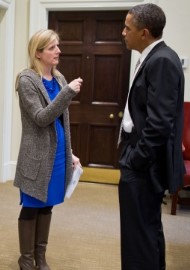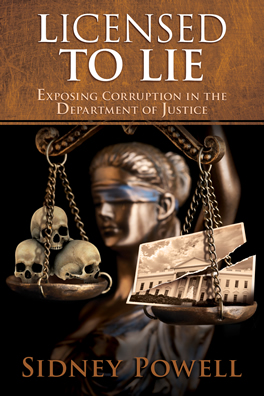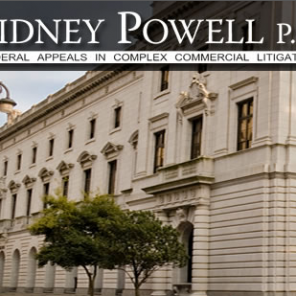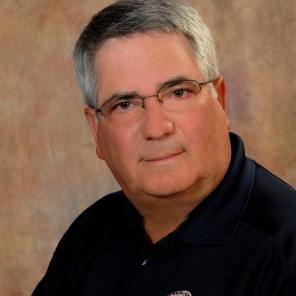D.C. Bar Fails Meaningful Discipline of Federal Prosecutor
 Today’s BLOG of the Legal Times reports yet another failure by a Bar Association to hold a federal prosecutor properly accountable for falling far below the ethical standards applicable to those who wield the extraordinary power to indict, convict, and imprison others. Despite a judge’s findings that Assistant United States Attorney Steven Snyder had a “history of repeated, blatant Brady violations” in a related case, Snyder received only
Today’s BLOG of the Legal Times reports yet another failure by a Bar Association to hold a federal prosecutor properly accountable for falling far below the ethical standards applicable to those who wield the extraordinary power to indict, convict, and imprison others. Despite a judge’s findings that Assistant United States Attorney Steven Snyder had a “history of repeated, blatant Brady violations” in a related case, Snyder received only
an informal admonition from the D.C. Office of Bar Counsel. He was accused of making false statements to a judge in the early stages of a group of murder and obstruction of justice prosecutions. It’s an outcome one defense lawyer involved in the cases called “ludicrous,” given a judge’s earlier findings that Snyder committed other serious ethics violations.
Bar counsel found Snyder violated the rules of professional responsibility by telling a judge he didn’t know of any psychiatric conditions related to a key government witness. In fact, bar counsel said, Snyder hadn’t searched the witness’ juvenile records, which he knew existed, and was aware of other information about the witness’ mental health. An informal admonition is the lightest form of discipline available.
Those earlier findings of serious ethical violations in the related case were not even mentioned by Bar Counsel, Gene Shipp. In addition, the Supreme Court has held that a prosecutor has a duty to look for and disclose evidence favorable to the defense or which could be used to impeach the government’s witnesses. A prosecutor cannot blind himself to evidence that he knows exists and hurts his view of his case.
In an opinion in May 2010, Superior Court Judge Rhonda Reid Winston vacated Grandson’s murder conviction [a defendant in a companion case] and ordered a new trial. The judge said Snyder had a “history of repeated, blatant Brady violations and misrepresentations” in the case, not limited to the witness payment issue.
The government had a duty to disclose information on the witness’ expectation of reward money, Winston found. Given the weight the witness’ testimony carried at trial, Winston said the outcome of the trial might have been different if defense lawyers could have questioned her more closely about her motive for testifying.
The judge also concluded that Snyder failed to disclose to the defense that a witness testified in the grand jury that Grandson was known to carry a gun that was different from the type of gun used in the murder. That information only came to light after the judge happened to look at the transcript of grand jury testimony.
Judge Winston called it as she saw it, and the D.C. Bar still did nothing meaningful. The Bar’s failure to take this misconduct seriously further undermines the administration of justice and reinforces the dangerous, unbridled power of prosecutors who are already protected from civil suit and against whom there is no other recourse.
The D.C. Bar and Mr. Shipp have done even less regarding a grievance filed by noted legal ethics expert, Bill Hodes, against now Chief White House Counsel Kathryn Ruemmler for her role in “plainly suppressing evidence favorable to the defense” while sending four Merrill Lynch executives to prison for conduct that was not criminal when she was a prosecutor on the Enron Task Force.
Ruemmler herself signed a court-ordered Brady letter that was affirmatively misleading.
Ruemmler’s letter omitted crucial, exculpatory evidence that Ruemmler and her colleagues (including now Deputy Director of the FBI, Andrew Weissmann, and former Acting AG Matthew Friedrich, who directed the debacle of a prosecution against Senator Ted Stevens-dismissed for prosecutors hiding evidence) had yellow-highlighted as Brady material before the trial and could only have deliberately hidden from the defense in clear violation of ethical rule 3.8.
Those yellow-highlighted statements directly contradicted these prosecutors only theory of any crime, the repeated arguments they made to the jury, and the hearsay testimony they elicited from their deal-making witnesses.
No wonder the public has no faith in any part of the legal system and views a law license as a license to lie.













2 Comments
I am trying to file in the office of bar counsel, and i have an attorney who has violated our civil rights, made racial remarks to my 7 year old daughter, and more, the story goes on, his is not licensed to practice in other states in which he is doing, something needs to be done with this office, to many people holding to much power…. not a trust worthy government…… or office …..
What is the motivation behind a professional disciplinary committee that fails to effectuate any real ethics-based discipline? This question is not to challenge what appears to be conclusive and overwhelming pattern and practice of unconstitutional behavior committed in too many prosecutors’ offices around this country. But, rather, it is to peel away the surface and get to why weak disciplinary decisions seems to be the norm. Are these boards not independent enough, perhaps because they are lawyers themselves? The largest majority of sanctions that are being handed out seem to the type that can be determined by non-lawyers: failure to meet deadlines, screwing around with other people’s money, etc. Maybe disciplinary committees should be made of rotating “juries” with a rotating pool of “in house” counsel available to answer legal questions. There certainly should be complete transparency in all of the proceeding-including abolition of confidentiality requirements.
.
What stops a non-lawyer from organizing a “citizens” conduct review organization?